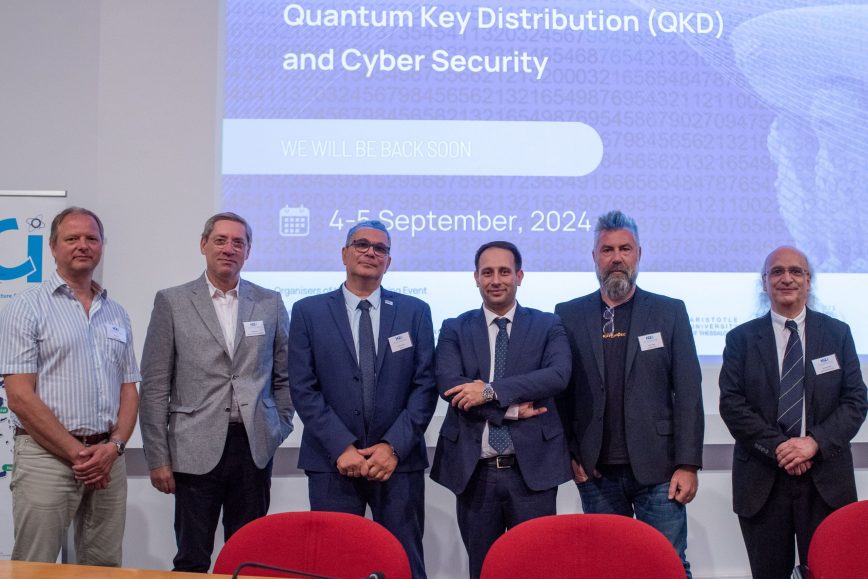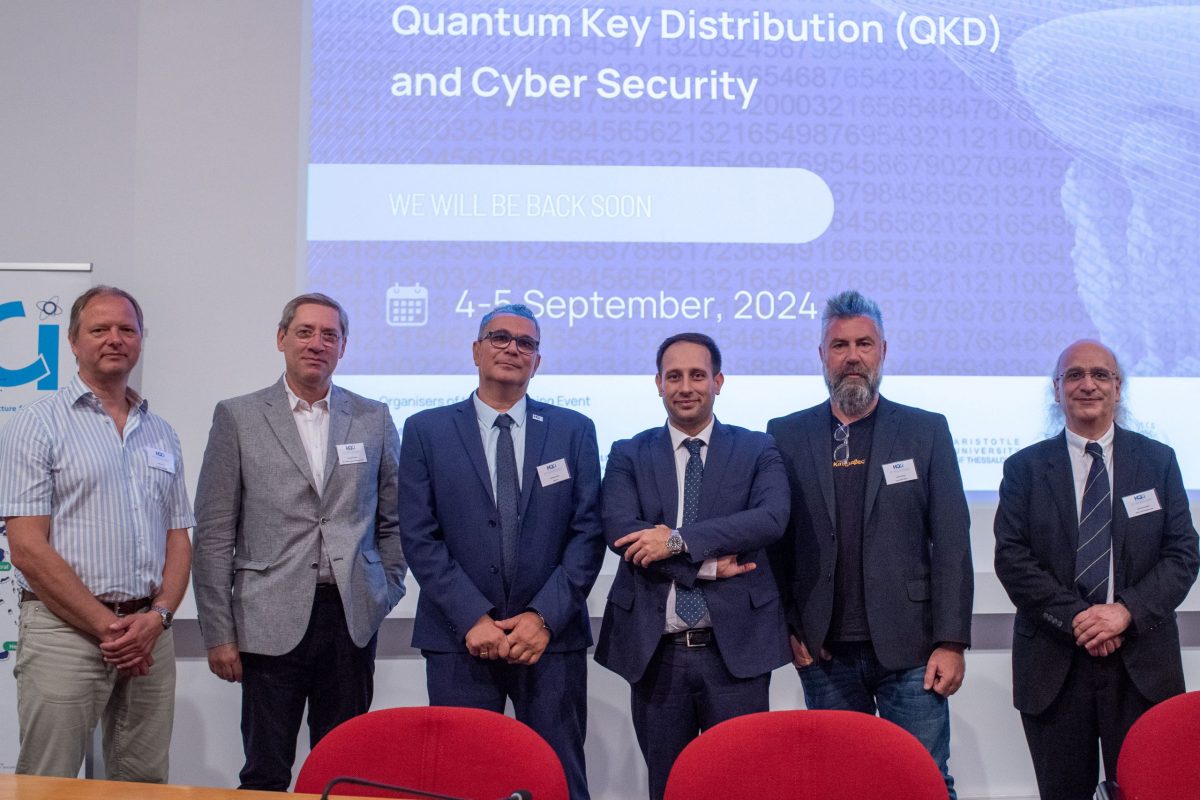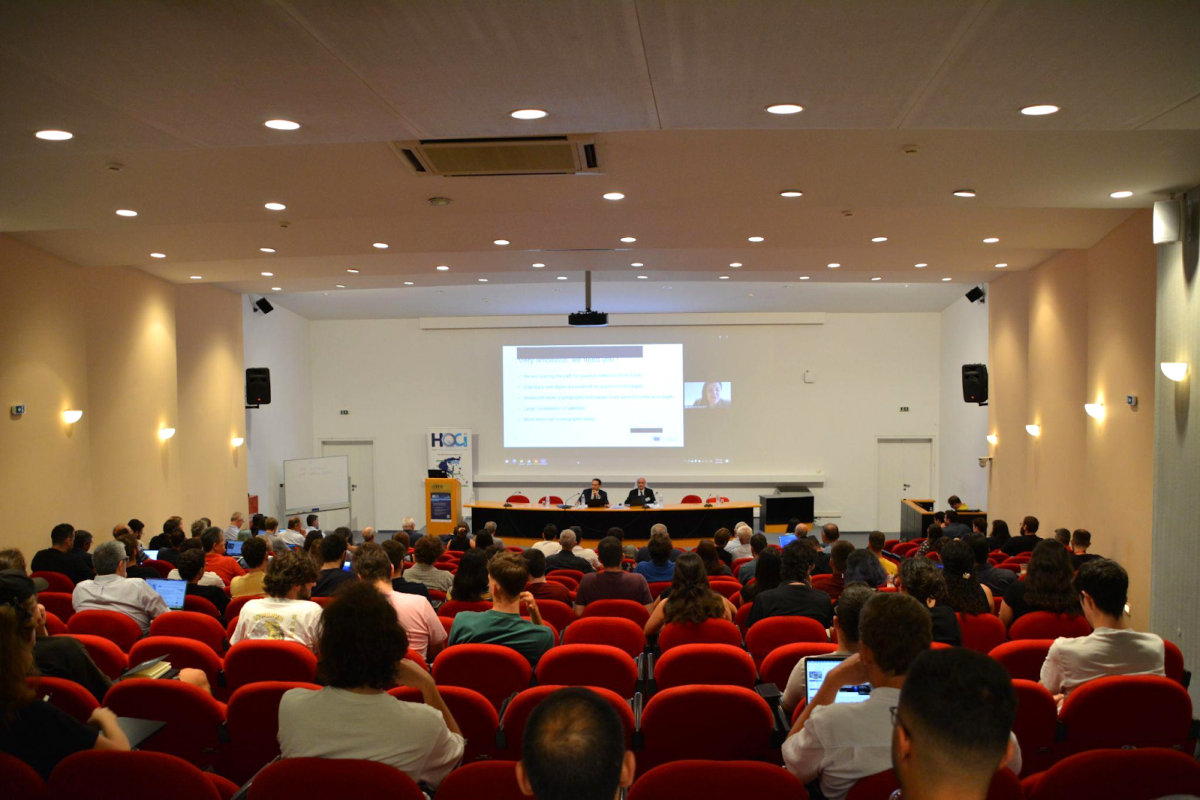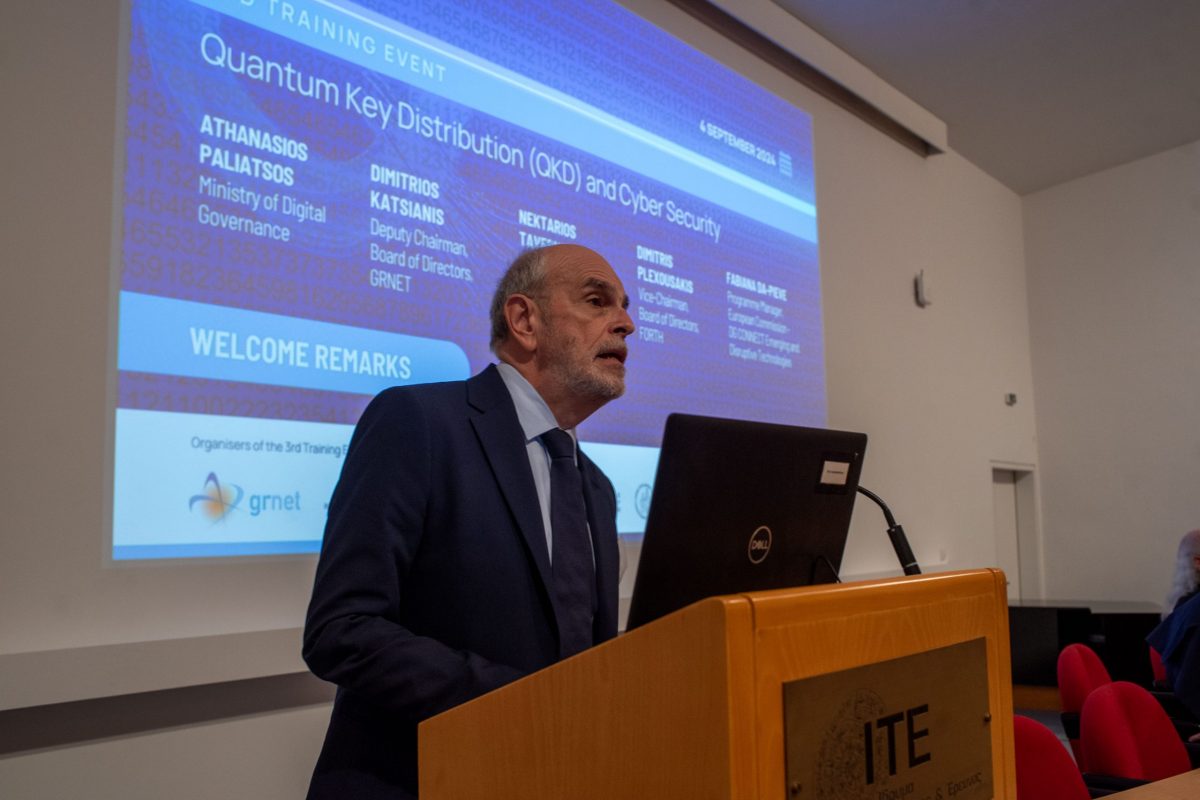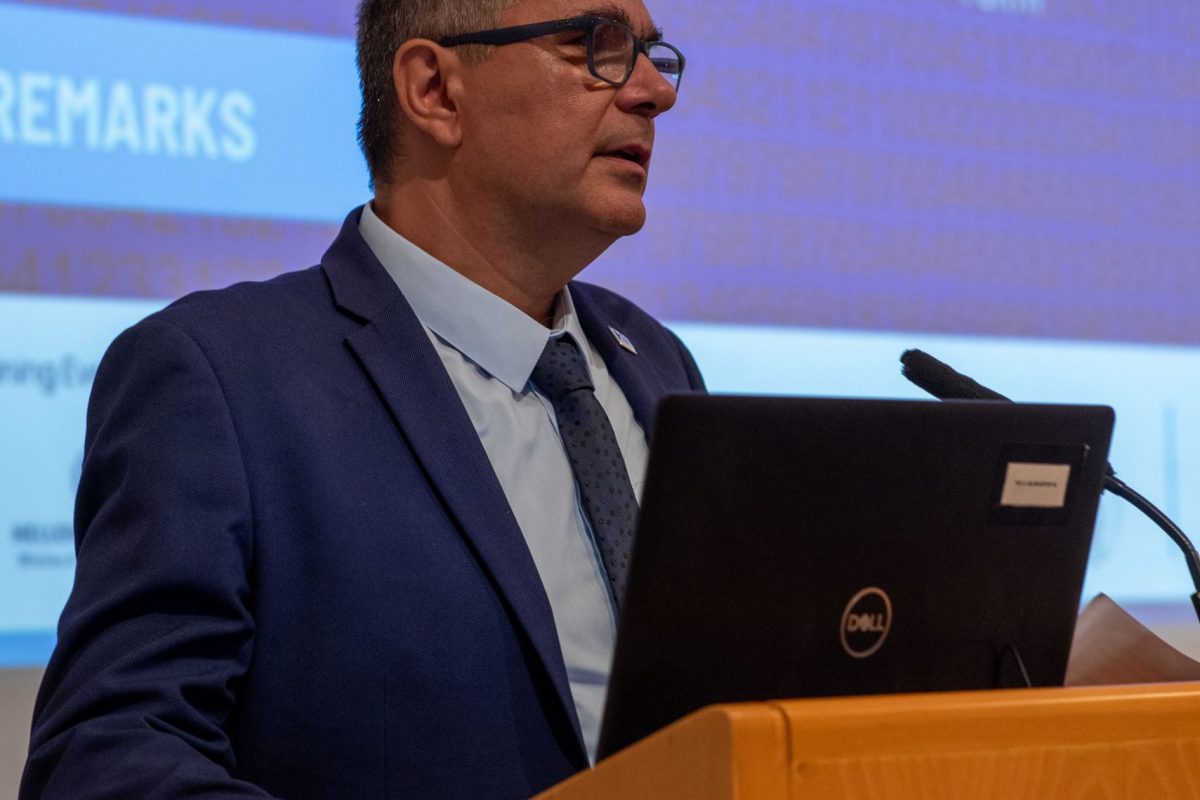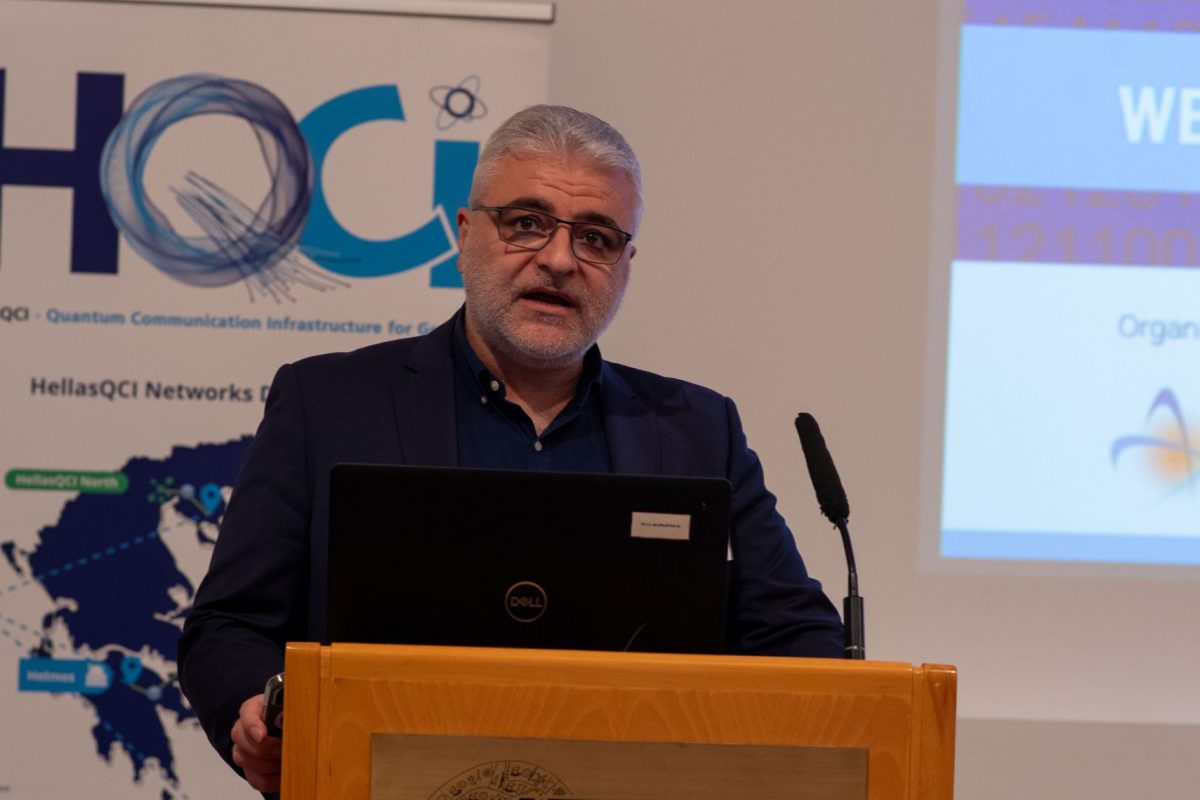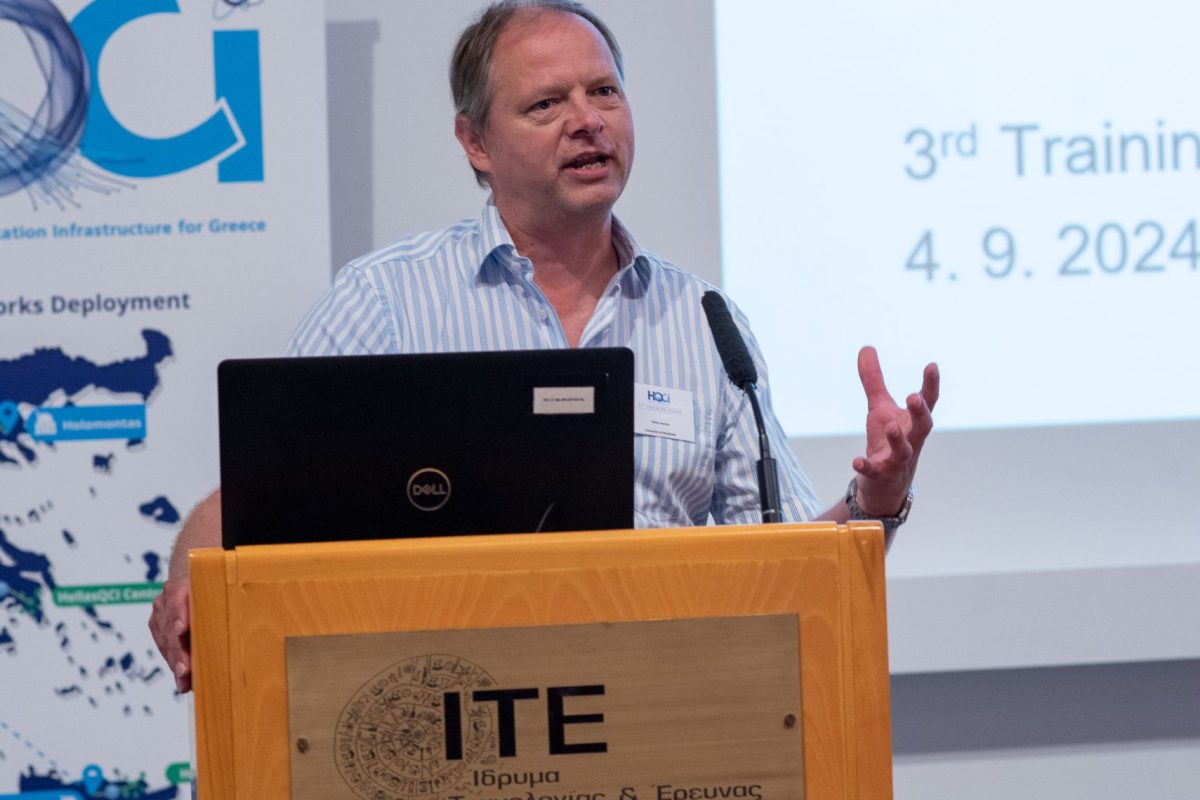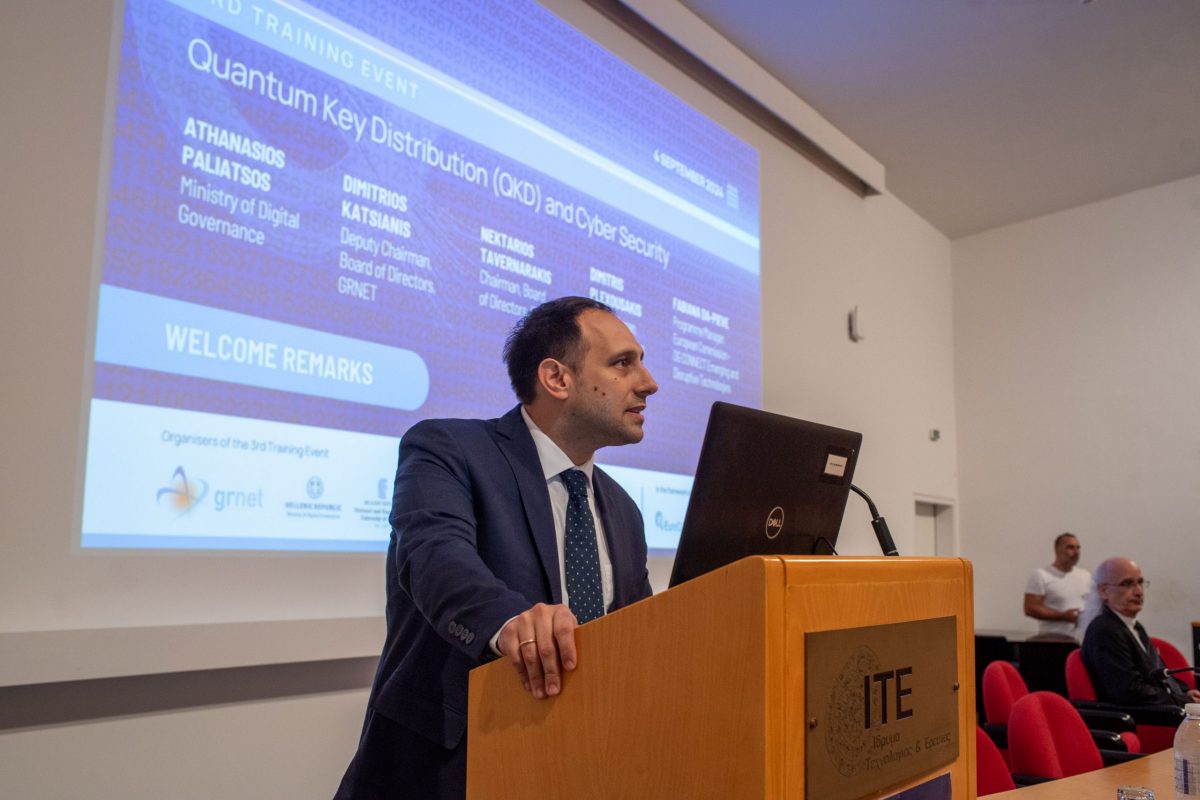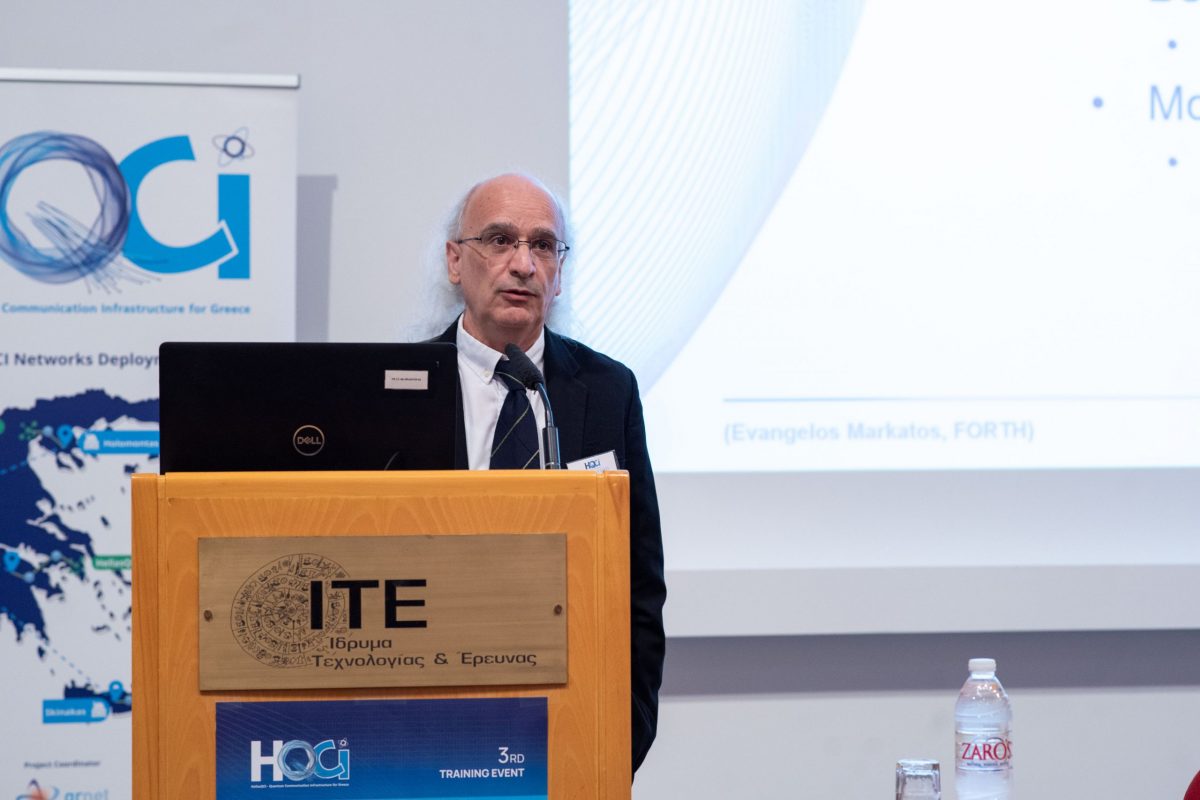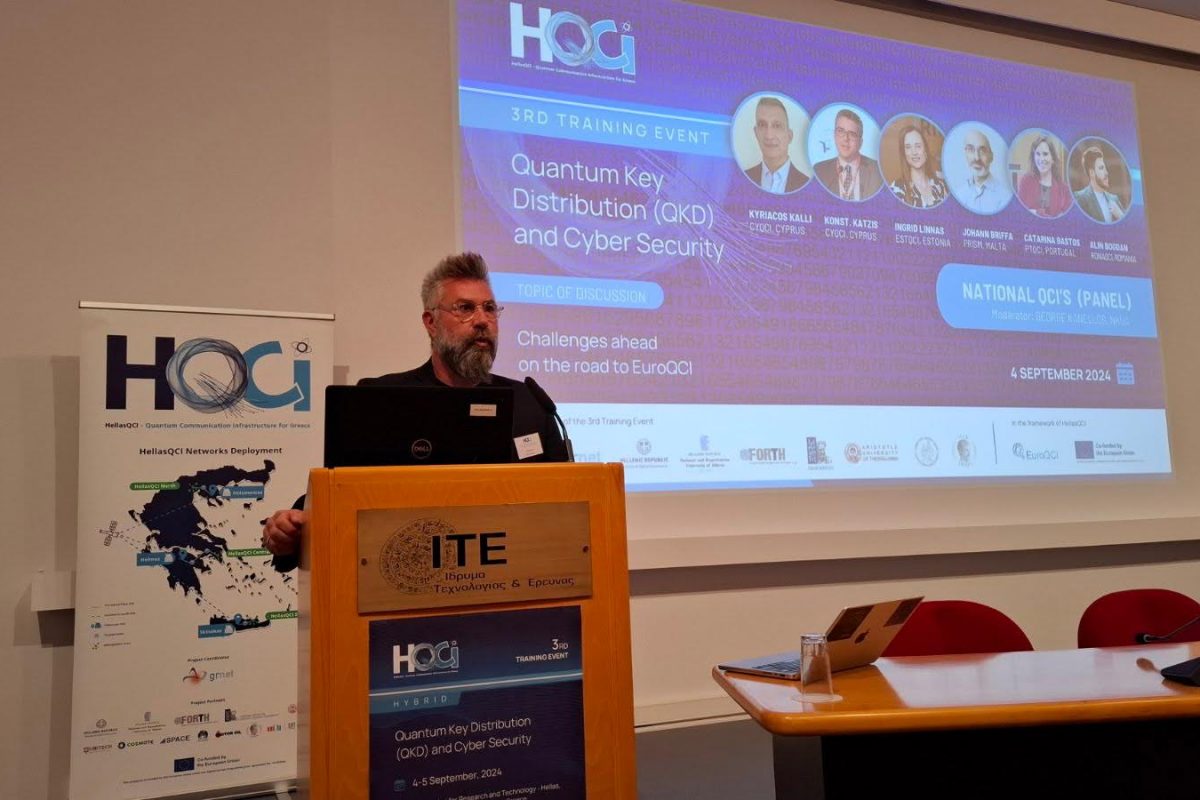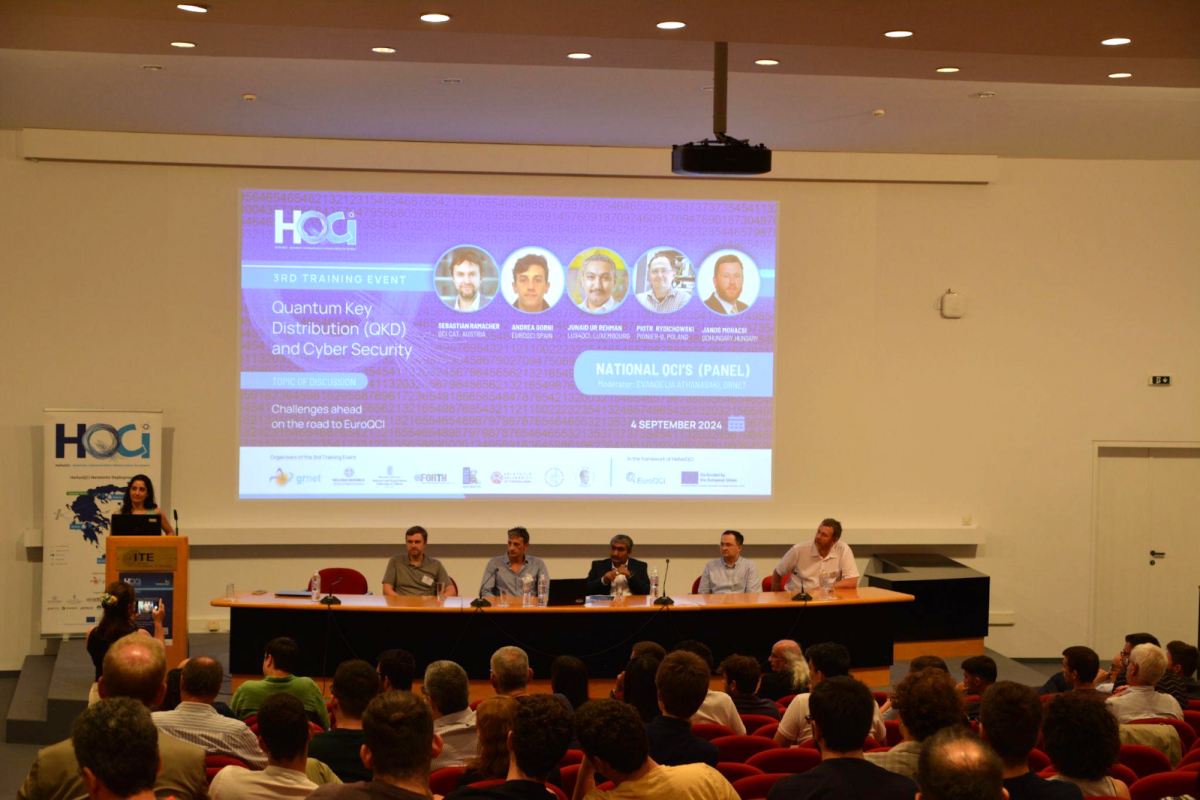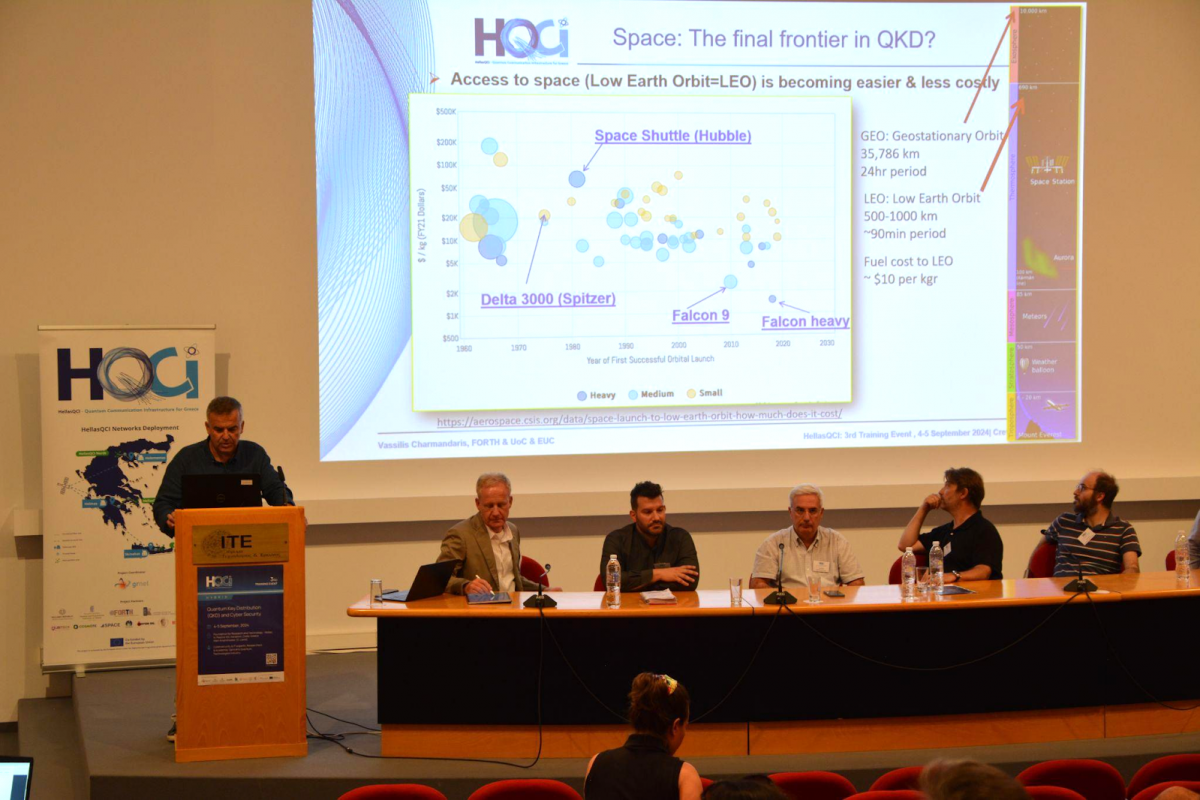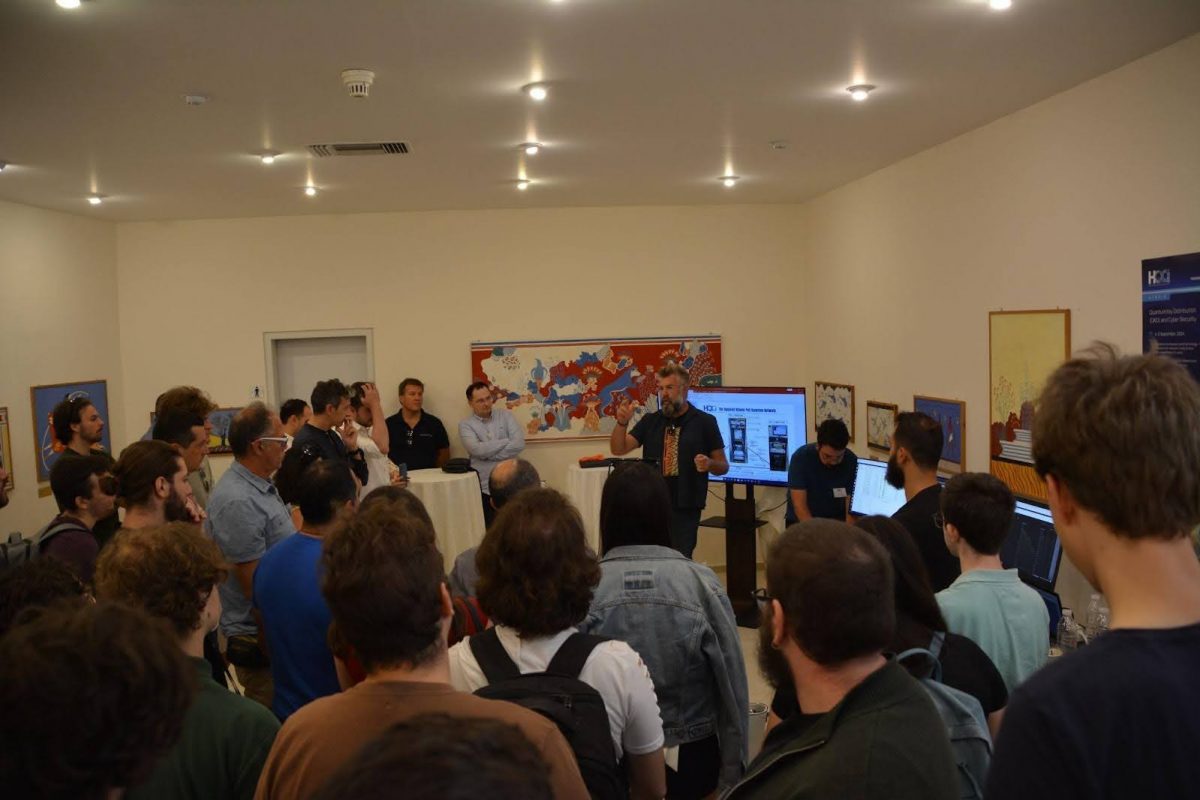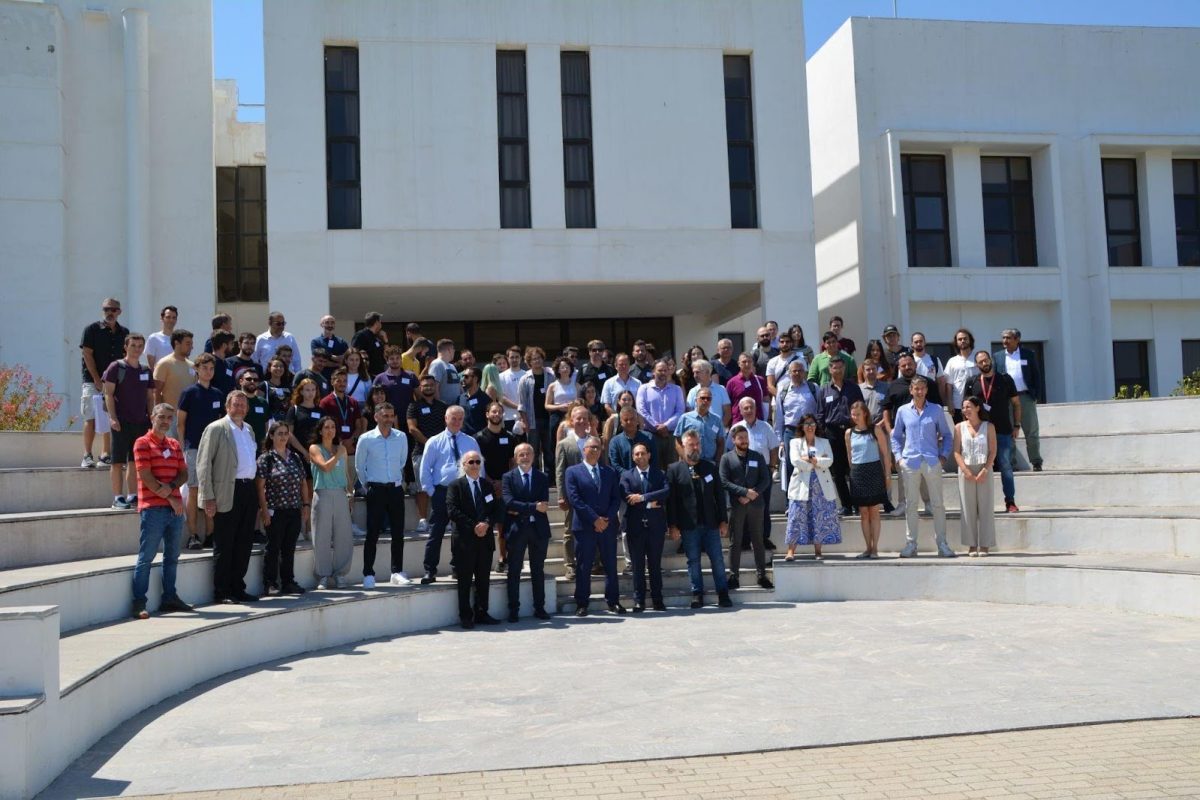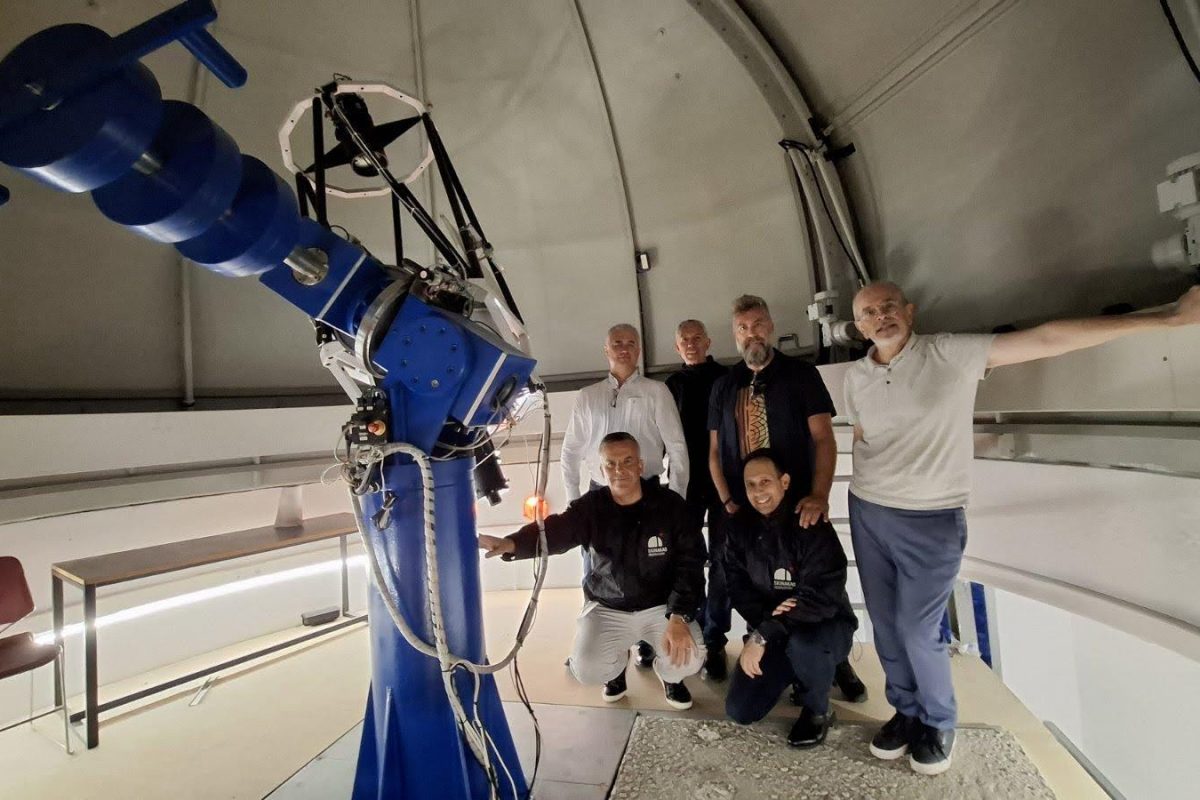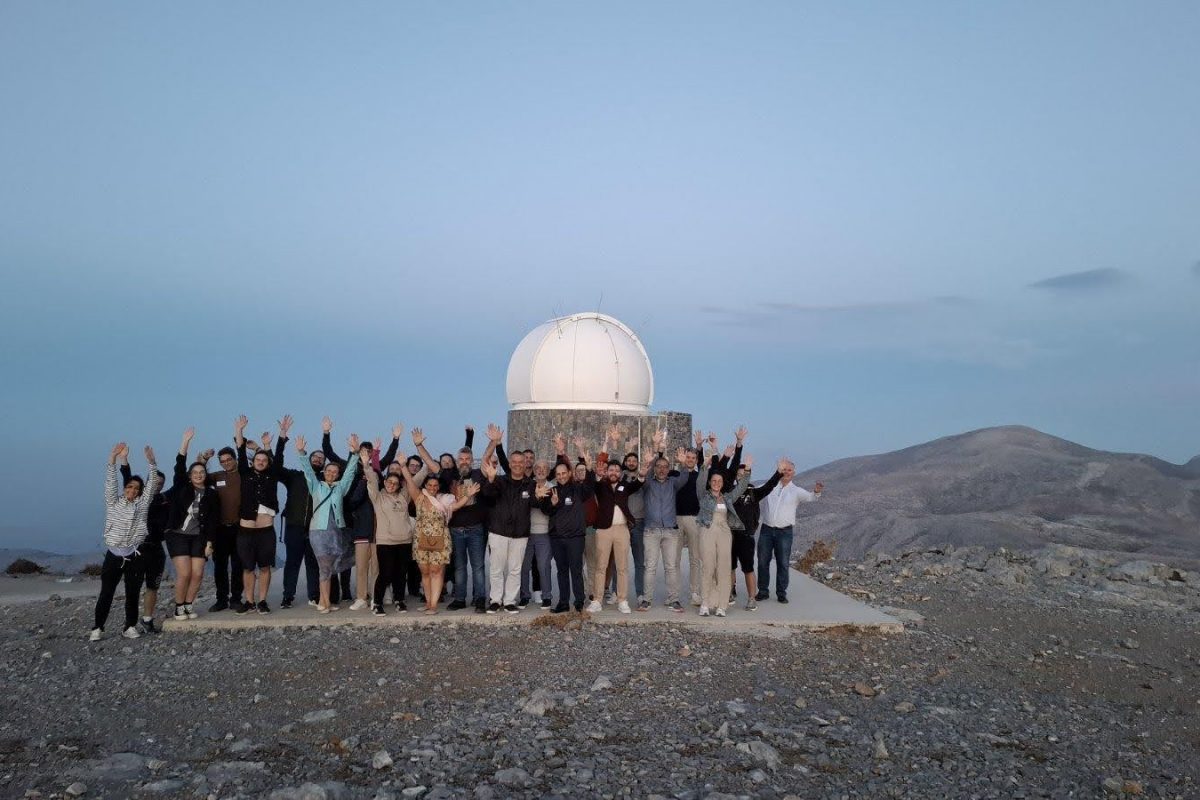A two-day Training Event on Quantum Technologies and Cybersecurity, coordinated by GRNET and FORTH
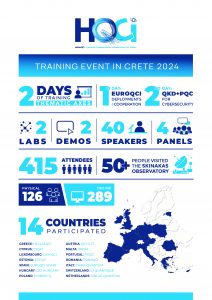
Aiming at training the new generation of engineers in quantum telecommunication technologies and strengthening cybersecurity at national and European level, the training event on: “Quantum Key Distribution (QKD) and Cyber Security” and two thematic axes EuroQCI Deployment & Cooperation and Quantum Key Distribution Systems and Post-Quantum Cryptography for Cyber Security, on September 4 & 5, 2024 at the premises of the Foundation for Research and Technology – Hellas (FORTH), in Crete.
This event is a direct continuation of the two previous axes Quantum Key Distribution (QKD) Systems and Cybersecurity with QKD Systems and Post-Quantum Cryptography (PQC) that were developed during the four-day training event that took place a year ago at the premises of the National Technical University of Athens (NTUA).
The training event was organised by the consortium of the European co-funded project HellasQCI, with the participation of forty (40) speakers from fourteen (14) countries who shared with the audience their specialised knowledge on cutting-edge and rapidly developing quantum technologies. Over four hundred (400) cybersecurity professionals, computer scientists and engineers, as well as students, researchers and academics specialising in the fields of optical and quantum technologies, and representatives of the respective industry, attended the hybrid training event and asked questions to the speakers.
The training event commenced with the addresses of: Athanasios Paliatsos, representative of the General Secretary of Telecommunications and Posts, Konstantinos Karantzalos, Greek Ministry of Digital Governance, Dimitrios Katsianis, Assistant Professor, National and Kapodistrian University of Athens and Deputy Chairman at GRNET S.A., Nektarios Tavernarakis, Chairman, Board of Directors at FORTH, Dimitris Plexousakis, Vice-Chairman, Board of Directors at FORTH, and Fabiana Da-PIEVE, European Commission, Directorate-General for Communications Networks, Content and Technology (DG CONNECT). The high-level session was moderated by Dr. Ilias Papastamatiou, Senior Project Manager at GRNET, HellasQCI Coordinator.
Amongst the international speakers, the event featured representatives from ten (10) National Infrastructures for Quantum Communications (NatQCIs) including QCI-CAT (Austria), LUX4QCI (Luxembourg), Pionier-Q (Poland), QCI Hungary (Hungary), PRISM (Malta), PTQCI (Portugal), CYQCI (Cyprus), RONAQCI (Romania), EuroQCI SPAIN (Spain) and EstQCI (Estonia), who talked about the challenges faced and solutions applied to enhance cybersecurity, showcasing the excellent cooperation amongst these NatQCIs and the Greek National Communication infrastructure – HellasQCI. Moreover, two important European Quantum-centred projects were presented, Nostradamus and Petrus, which, in turn, contribute to the implementation of the European Quantum Communications Infrastructure (EuroQCI).
During the demo of the Quantum Key Distribution (QKD) network, participants had the opportunity to see a glimpse of the future of secure communications by observing the progress of the HellasQCI testbed on the Athens metropolitan network. The demonstration took place on a complex three-node network, connecting GRNET to the University of Athens at a distance of up to 45 km. Each node was equipped with three layers: the Quantum Layer, the Key Management Layer and the Application Layer, offering integrated encryption solutions. One of the innovations of the demonstration was the hybrid operation of the key management system, which had the ability to manage both quantum keys and classical keys, ensuring uninterrupted security in case of QKD failure. At the same time, the system allowed optimization of QKD resources, requiring fewer pairs of devices to support more nodes. Finally, the demo included QKD devices from different vendors, proving the interoperability and practical application of these technologies.
On the last day of the training event, the participants had the opportunity to visit and enjoy a guided tour of the Skinakas Observatory, a strategic partner of the HellasQCI project. The Skinakas Observatory together with the observatories of Chelmos (Peloponnese) and Cholomontas (Thessaloniki) are being converted into optical ground stations (OGS) for the space part of EuroQCI and HellasQCI provides terrestrial connectivity to the metropolitan network sites – MAN (Heraklion-Crete, Athens and Thessaloniki respectively) via fibre optics and quantum key distribution (QKD) devices.
The event culminated in the realisation that the development of the pan-European EuroQCI initiative, along with the Greek Quantum Communications Infrastructure HellasQCI, will contribute to building secure telecommunications, protecting sensitive data, and safeguarding critical infrastructure. This will ensure a successful and secure transition to tomorrow’s digital technology for the citizens, as well as the public and private enterprises, of Greece and Europe.



